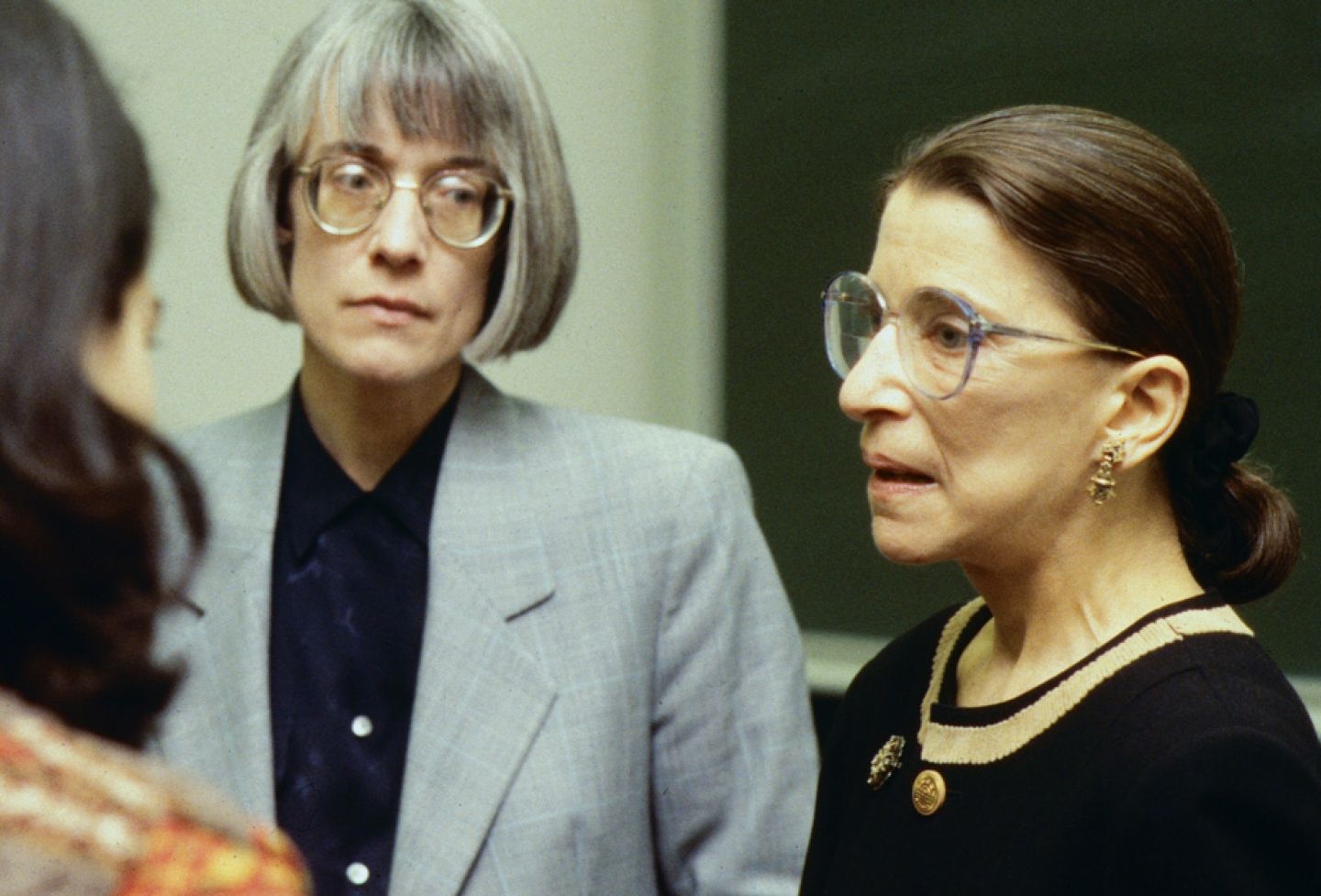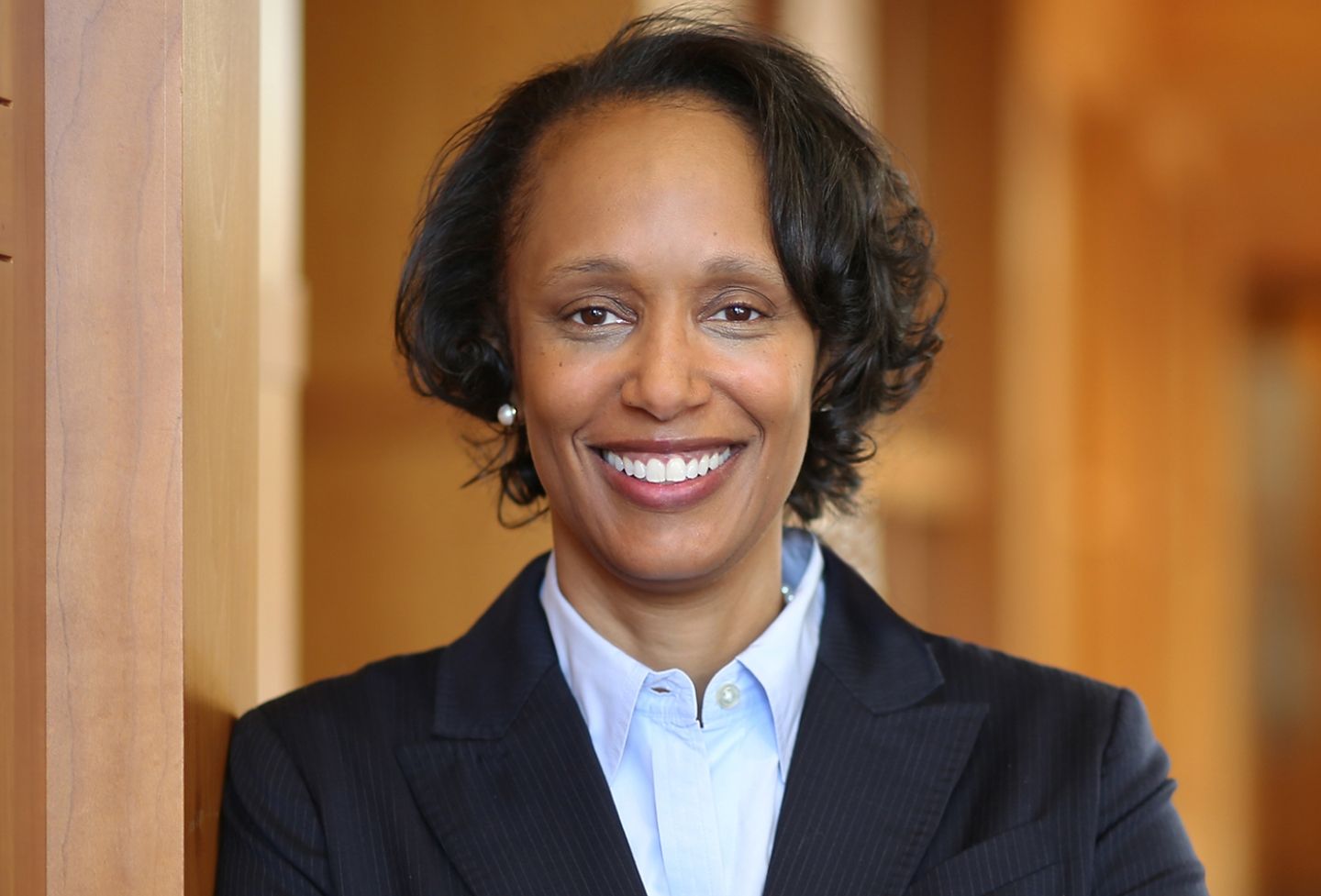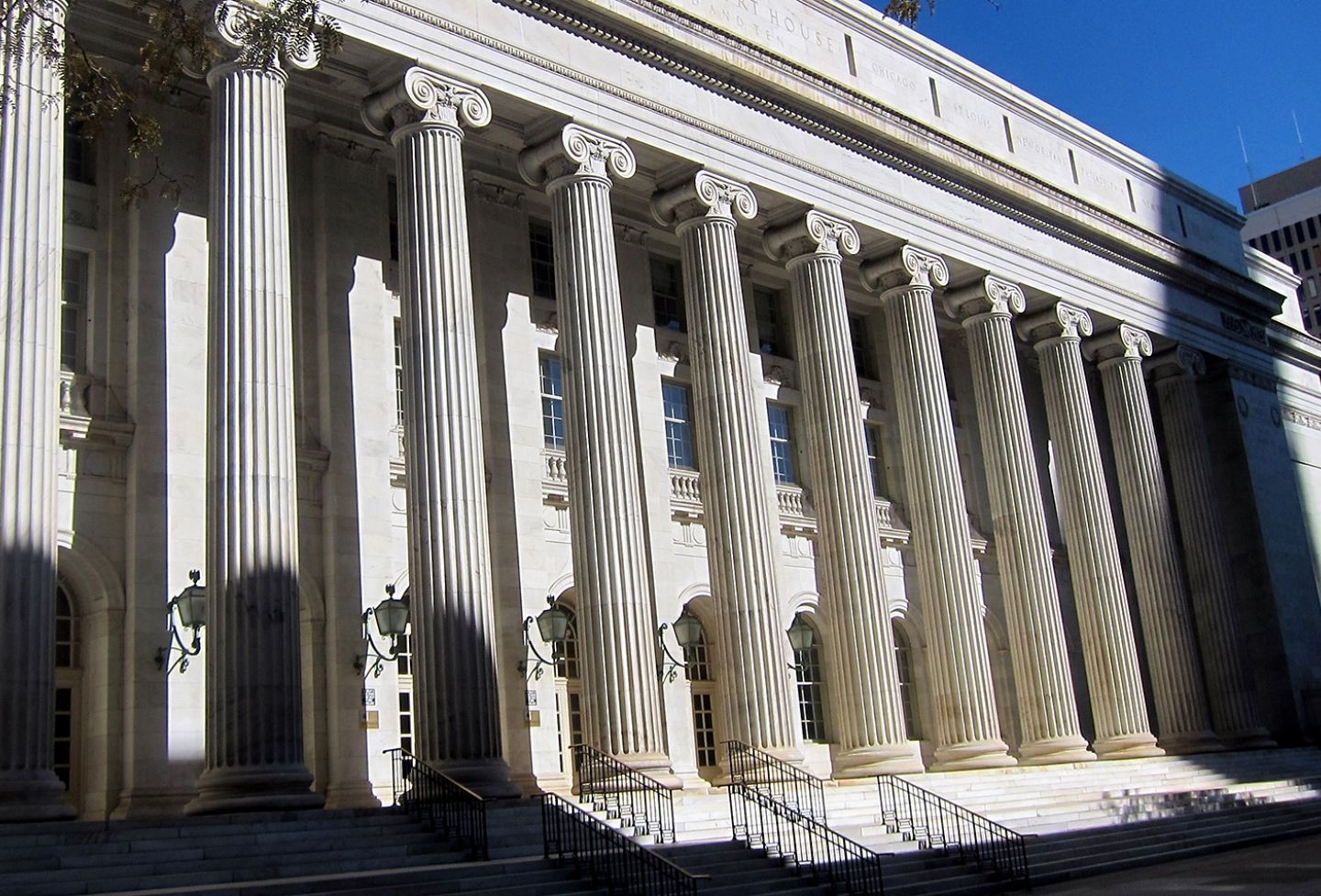As news trickled out on social media this spring, academics were quick to recognize that something special was happening at UVA Law.
Ten professors committed to joining the faculty this fall and in 2021, representing the Law School’s single biggest investment in scholarly talent in one year, and a culmination of years of recruitment efforts.
Those joining the faculty this year include both new and more established scholars: Lawrence B. Solum from Georgetown, Naomi R. Cahn from George Washington, Kristen Eichensehr and Richard Re from UCLA, Cathy Hwang from Utah, Megan T. Stevenson from George Mason and Thomas Frampton, who was a Climenko Fellow at Harvard.
In addition, Mitu Gulati and Kimberly D. Krawiec of Duke, and David Law of the University of Hong Kong will join the faculty in 2021-22.
Each, as Dean Risa Goluboff puts it, is a “rock star” in his or her respective areas of study.
“Together, they reflect and enhance the exceptional intellectual community that has long been a hallmark of the Law School,” Goluboff said. “They range widely across subject areas, disciplines and approaches. They are award-winning teachers, serious scholars, and engaged and influential public intellectuals.”
The dean added that the Law School is not finished: “We intend to build on this momentum. As we continue to bring outstanding scholars to UVA, we are especially committed to expanding the diversity of our faculty.”
Goluboff noted that hiring talented faculty always comes with the possibility that they will move on to leadership positions. Since 2012, six faculty members have become deans of top law schools: A. Benjamin Spencer (William & Mary), Dayna Bowen Matthew ’87 (George Washington), Kerry Abrams (Duke), M. Elizabeth Magill ’95 (Stanford, now executive vice president and provost at UVA), Jennifer Mnookin (UCLA) and Goluboff.
Virginia will likely continue to produce leaders in higher education and the legal academy, so the need to refresh the school’s talent pool will continue, Goluboff said.
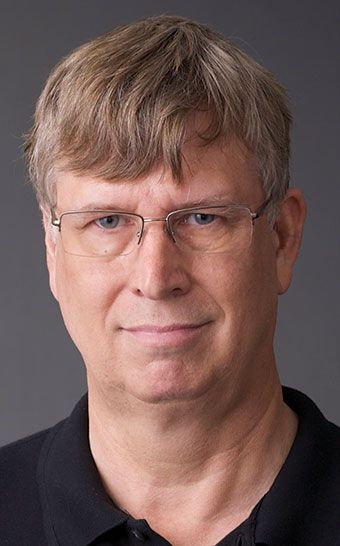
An Original Thinker
Lawrence B, Solum, a legal theorist whose ideas about how to interpret the Constitution and the purpose of law have influenced scholars worldwide, joins UVA from the Georgetown University Law Center.
“He is quite simply one of the country’s preeminent legal and constitutional theorists,” Goluboff observed.
Solum’s four-decade academic career, which includes having taught as a visiting professor at the Law School last fall, has been largely focused on constitutional theory, procedure and philosophy of law. He is the author of numerous books and treatises, and has published more than 80 articles in law reviews and philosophy journals. A former editor of the Harvard Law Review, he currently edits and publishes his influential Legal Theory Blog to introduce new concepts by his colleagues working in the field, and to serve as a resource for law students and others.
Solum is an originalist, seeking to divine the meaning of the language in the Constitution as it was understood at the time of its creation, more than 200 years ago. Integral to his personal approach is “the idea that originalists should employ all of the resources of linguistics and the philosophy of language in order to rigorously investigate what the constitutional text meant,” he said. In 2017, he testified before Congress in accordance with his views as part of the confirmation process for U.S. Supreme Court nominee Neil Gorsuch.
But what makes Solum different than many of his originalist peers is that he’s not a conservative, nor does he believe that the originalism school of thought always translates as contrary to a progressive judiciary. His research has found that originalism sometimes leads to liberal and progressive outcomes, as he reveals in his article “Surprising Originalism.”
Despite looking to the past, Solum has been ahead of his time in much of his research.
In the early 1990s, he wrote the first article to predict the widespread application of artificial intelligence for numerous legal functions traditionally performed by human lawyers, titled “Legal Personhood for Artificial Intelligences.” He noted that, today, the creation of work product by AI is a common occurrence, and that the European Union has devised a legal framework to recognize it, as he predicted.
Solum also co-authored an article in the 2000s, “An Economic Analysis of Domain Name Policy” (with Karl M. Manheim), that influenced the Internet Corporation for Assigned Names and Numbers, or ICANN, to expand its set of top-level domain names and introduce an auction scheme for allocation.
In addition to researching and commenting on specific aspects of the law, Solum has an overarching view of the function that law should serve, which he calls “virtue jurisprudence.” It’s based on the teachings of Aristotle and inspired by one of his mentors, the moral philosopher Philippa Foot, who is famous for having created the “trolley problem” (a thought experiment in which one must choose between intentionally killing one person to save a group of other people, or failing to intervene and letting the group die).
“When we are thinking about what the law should be, we should think hard about the effect of law on character,” Solum said. “We should create the conditions in which human beings can acquire the virtues — the human excellences, and the capacity that enables them to flourish — to live the best possible life they can.”
Solum said teaching is a joyful way to share theories like these, as well as his accumulated knowledge and insights, while also allowing him to learn new things based on his interactions with students.
“Even after 35 years, I still prepare for several hours for each class I teach, and I learn new things almost every time from almost every class,” he said.
Solum earned his J.D. from Harvard Law School and his B.A. in philosophy from the University of California, Los Angeles. He clerked for Judge William A. Norris of the U.S. Court of Appeals for the Ninth Circuit. He also worked at the law firm Cravath, Swaine, and Moore in New York before academia.
Solum is the William L. Matheson and Robert M. Morgenthau Distinguished Professor of Law and the Douglas D. Drysdale Research Professor of Law. He is an affiliated faculty member of the school’s new Center for Law & Philosophy.
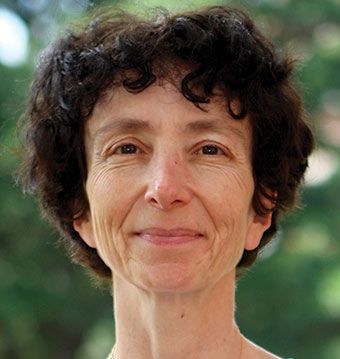
Family Law and Feminism Theorist
Naomi R. Cahn, a national leader in the field of family law, as well as trusts and estates and feminist jurisprudence, comes to UVA Law from George Washington University Law School, where she had been on the faculty since 1993.
Cahn “is one of those scholars who makes you say ‘wow’ when you consider the breadth of her contributions to the academy,” Goluboff said.
At the Law School, Cahn has been tapped to lead the new Family Law Center and is serving as the inaugural Justice Anthony M. Kennedy Distinguished Professor of Law as well as the Nancy L. Buc ’69 Research Professor in Democracy and Equity.
In 2017, Cahn won the Harry Krause Lifetime Achievement in Family Law Award from the University of Illinois College of Law.
A co-author of the widely used casebook “Contemporary Family Law,” Cahn is active in the public conversation. Having penned more than 100 law review articles and book chapters, she is a frequent voice in the mainstream media too. She is a senior contributor to Forbes through its Leadership Channel, the family law section co-editor at Jotwell and an author of several books for the mass market. Her co-authored book “Red Families vs. Blue Families: Legal Polarization and The Creation of Culture” explores how the partisan political divide is reflected in differing patterns in family life and sexual values.
“The book really struck a chord with people, making an impact outside the legal field,” she said.
She has also written important works on feminist jurisprudence, reproductive technology and other topics. She is currently working on her latest co-authored book, tentatively titled “Shafted: The Fate of Women in a Winner-Take-All World,” to be published by Simon and Schuster.
<p>Cahn hasn’t just written about how the law can be improved; she has actively pursued reform through her many involvements, including her work as a reporter with the Uniform Law Commission. One of those projects involved how the trusts and estates field should handle digital assets when a family member dies. She said it’s the “What happens to your Facebook account when you die?” question, as well as many others that fall within the digital category. Cahn and her colleagues developed model legislation so that fiduciaries can have the ability to control or copy digital content as needed, respecting the expressed wishes of the deceased.</p>
<p>So far, more than two-thirds of states (including Virginia) have adopted the legislation in some form.</p>
<p>Cahn was chosen by the commission, in part, based on her award-winning articles “<a href="https://ssrn.com/abstract=2026628" target="_blank">Postmortem Life On-Line</a>” and the co-authored “<a href="https://ssrn.com/abstract=1980887" target="_blank">When You Pass on, Don’t Leave the Passwords Behind: Planning for Digital Assets</a>.” Both were published in Probate and Property Magazine, which honors its best articles each year.</p>
<p>She is currently working on model legislation with the commission on the economic rights of unmarried cohabitants, which would help improve equity related to co-investment in property, as one example.</p>
<p>Cahn is a member of the American Law Institute, an elected fellow of the American College of Trust and Estate Counsel, associate editor of the ACTEC Law Journal, and a member of the American Bar Foundation. In addition, she has chaired and served on the Steering Committee for some of the major Association of American Law Schools sections, such as Women in Legal Education, Family & Juvenile Law, Aging and Africa.</p>
<p>She has also been recognized for her efforts developing and mentoring others. At George Washington, she served as associate dean for faculty development for more than four years. She said she looks forward to interacting with her new colleagues and mentoring UVA Law students.</p>
<p>“I’m so delighted to be joining such an intellectually vibrant community,” she said. “When I was trying to make my decision, I spoke with a Virginia student who told me that she almost wished there was a fourth year of law school. That’s so unusual to have students who are so enthusiastic about being in law school and their professors.”</p>
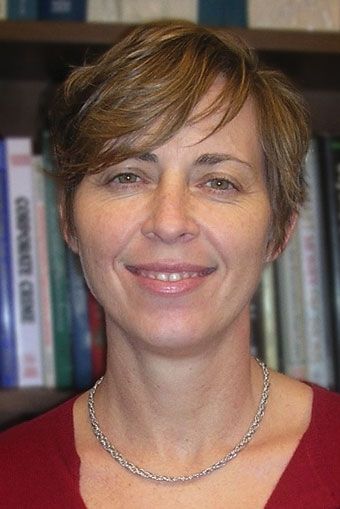
Markets Analyst
Kimberly D. Krawiec, a leading expert in corporate law and markets, will join UVA Law from Duke University School of Law in the fall of 2021.
Krawiec’s interests span a variety of fields, including the empirical analysis of contract disputes, the choice of organizational form by professional service firms, corporate compliance systems, insider trading, derivatives hedging practices and “rogue” trading.
But she has garnered the most attention for exploring how nontraditional markets become legitimized, as well as the potential merits of illegal and taboo ones. Goluboff has referred to her as “a major contemporary voice on misconduct and trade within forbidden or contested markets.”
Prior to joining academia, Krawiec was a member of the commodity and derivatives group at the New York office of Sullivan & Cromwell. That experience set her on a path of scholarship.
Among her early articles was one titled “More Than Just New Financial Bingo: Risk-based Approach to Understanding Derivatives,” published in the Journal of Corporation Law, where she helped explain the area of investment, which is now commonly accepted.
She said insurance is another example of a market that we now take for granted. “How is this different than gambling on somebody’s death?” she asked. “Even though I started with what we think of as mainstream markets, at the beginning they weren’t.”
In more recent years, she has turned to black markets, such as those for people seeking to replace an organ.
In the United States, for instance, kidney donations are legal, but kidney sales are still prohibited. Meanwhile, other high-risk ways of making money are legal, as she explores in her co-authored paper “If We Pay Football Players, Why Not Kidney Donors?,” published in Regulation in 2018.
“What I try to do is analyze the objections to these markets,” Krawiec said. “There are fewer health risks in kidney donations than professional football,” she said, “although riskiness is not the only objection.”
<p>One reluctance to creating a marketplace for organs is that poor people would participate disproportionately, she said. Change has also been slow because there is no medical benefit to the donor, she added.</p>
<p>But a sea change in paid exchange could potentially benefit countless sick people who are waiting for an organ donation that’s a match. To that end, Krawiec works with a team of economists that includes Al Roth, who won a Nobel Prize for his research into the practical aspects of matching buyers and sellers, and Michael Rees, who designed the first prototype of a paired kidney donation matching system in 2000. Rees’ Global Kidney Exchange facilitates matches across borders, most often with Americans paying providers from developing nations, a concept that Krawiec acknowledges is not without controversy. She co-authored with Rees the article “<a href="https://ssrn.com/abstract=2394242" target="_blank">Reverse Transplant Tourism</a>,” published in 2014 in Law & Contemporary Problems.</p>
<p>“Acceptance is coming, but it’s slow,” she said.</p>
<p>Professor <a href="/faculty/profile/jdm8t/1186864">Julia Mahoney</a>, whose scholarship has also focused on markets, said Krawiec’s work is important to many larger conversations.</p>
<p>“Her scholarship spans corporate governance, financial regulation, contracts, and the ethics of market and non-market allocation of goods and services, and her work has both influenced and expanded debates in all these areas,” Mahoney said.</p>
<p>Krawiec, who visited at UVA Law in 2004, has taught both large lecture classes and smaller ones, including recent favorites Taboo Trades and Forbidden Markets, and Advanced Contracts. In the latter, “I take some of the concepts from the first-year Contracts and put them in a modern setting: What’s a gift? If someone promises to give a kidney, what do you do if they renege? Each year the course presents different contract issues we will need to think through.”</p>
<p>She has also taught at Harvard, the University of North Carolina and Northwestern, where she received the 1999-2000 Robert Childres Award for Teaching Excellence.</p>
<p>Krawiec has served as a commentator for the Central European and Eurasian Law Initiative of the American Bar Association and on the faculty of the National Association of Securities Dealers Institute for Professional Development at the Wharton School of Business. She earned her J.D. from Georgetown University and her B.A. from North Carolina State University.</p>
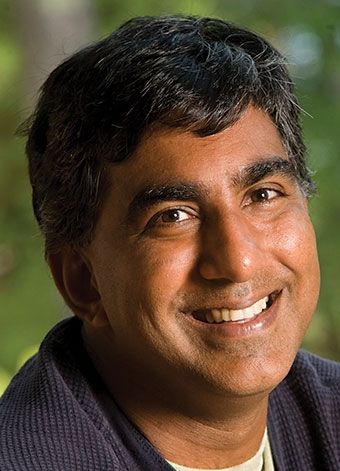
Adviser to Distressed Nations
Mitu Gulati, a renowned scholar of sovereign debt and contract law, will join the Law School from Duke Law School in the fall of 2021.
Gulati focuses on countries in financial distress.
“It’s just one of the things I like doing,” Gulati said of his scholarly work steered towards governments and the organizations that advise them. His research with eminent practitioner Lee Buchheit, a visiting professor at the University of Edinburgh, has served as the template for sovereign debt restructurings in numerous countries.
“It is hubris to say that our obscure academic writings influenced the success or failure of any of these deals, but it is nice to pretend that that is the case,” Gulati said.
But Goluboff noted that such comments understate Gulati’s true influence: “Mitu Gulati is one of the absolute leading people in the world on sovereign debt and has had a huge impact on the real world.”
COVID-19 has kept him busy in terms of his research on sovereign debt matters. The pandemic has hit the finances of many countries harder than almost any period in recent history, except perhaps the Latin American debt crisis of the 1980s, he said.
“And it may turn out to be worse; maybe as bad as the Great Depression of the 1930s,” he added. “Unfortunately, we have no coherent plan for a situation like this where 20 or 30 countries default simultaneously. The global financial architecture is not built to deal effectively with some of the contingencies that have become likely as a result of COVID-19.”
Formerly on the faculties of UCLA and Georgetown (and a visiting professor at UVA in 2004) before joining Duke in 2005, in addition to writing on sovereign debt, he also writes in con¬tract law, judicial behavior and critical race theory. He is known for papers such as the co-authored “How to Restructure Greek Debt” — which he jokes only ranks highly on SSRN because his students have cited him.
In the classroom, he likes to address the often-unexpected nature of contracts.
<p>“Contracts are just not as finely crafted as the traditional law school class assumes or teaches,” Gulati said. “We generally operate on the assumption that all the provisions in a contract are the ones the parties wanted to properly allocate risk or return. But even highly sophisticated contracts are often produced quickly just to get the deals done.”</p>
<p>He said much of his understanding about the basics of how contracts work, or fail to, has been influenced by former UVA Law Dean Robert Scott, who is now at Columbia Law School, and their joint collaboration with Stephen Choi of the New York University School of Law.</p>
<p>Gulati’s interest in the flaws in the traditional assumptions underlying much of modern contract theory began around the time he was teaching at UVA, when creditors began asking the newly reformed Iraqi government to honor the commitments of the overthrown Saddam Hussein.</p>
<p>“Ultimately there was a political compromise in Iraq,” he said. “It did not go down the path of a legal solution that could help other countries.”</p>
<p>Despite years of studying how to handle the debt of deposed leaders, “our attempts to find a solution to the problem of despotic leaders who overburden their people with debt have failed miserably,” he said.</p>
<p>But while there may not be a one-size-fits-all solution to how nations handle their debts, his work has made a difference. His writings with Buchheit have been relevant in the recent sovereign debt restructurings of Ecuador, Uruguay and Barbados.</p>
<p>“Mitu Gulati has a uniquely wide and rich range of interests and scholarship,” said Professor <a href="/faculty/profile/pbs/1211911">Paul Stephan ’77</a>, an expert in international law. “He always co-authors, and he always makes a significant impact. This shows both his brilliance and his generosity. He also is one of the nicest people on the planet.”</p>
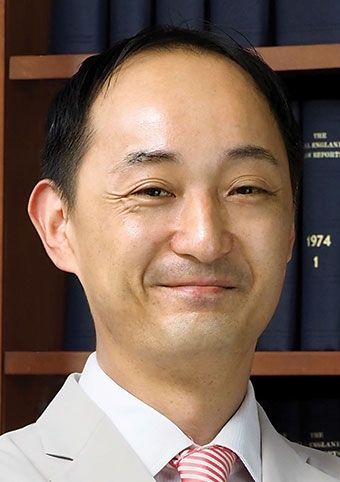
Courts and Constitutions Expert
David S. Law, a highly respected scholar of public law who has authored high-profile work on courts and constitutions, will join the Law School from the University of Hong Kong in the fall of 2021.
Goluboff heralded Law as “a world expert on comparative constitutional law and the law of East Asia.”
Law’s scholarly interests include public law, comparative law, law and social science, judicial politics, and constitutional and political theory.
Initially, he had planned to only take leave for a year or two from Washington University in St. Louis, where he started in 2008 — his first position as a full professor of law. “Turns out that there is a lot you can do in Asia,” he said of his research, which has spanned numerous countries.
Law is known for using quantitative research whenever possible, but he’s not afraid to use qualitative methods through field research when raw data is harder to come by.
“You have to pick the right tool for the job,” he said.
That was the case with his 2009 Texas Law Review article “The Anatomy of a Conservative Court: Judicial Review in Japan,” which looks at why the Japanese Supreme Court hardly ever strikes down laws. (The answer, in short: The government consistently chooses conservative chief justices close to retirement age who wield considerable power over the judiciary.)
“I really love to do fieldwork,” he said. “It’s a real thrill to play detective. Also, I have been fortunate that judges in Asia have been very generous with their time.”
As an outsider, he was able to ask questions of the Japanese justices that would have been viewed as “wildly impertinent” from a native, he said.
Law’s first book, “The Japanese Supreme Court and Judicial Review,” was published in Japanese by Gendaijinbunsha. His works have also been translated into Chinese and Romanian.
<p>In addition to his solo authorship, Law has found success in collaboration. Over time, his co-authorship with Professor <a href="/faculty/profile/ev4a/2301734">Mila Versteeg</a>, a comparative constitutional scholar, has resulted in five papers, including “<a href="https://ssrn.com/abstract=1923556" target="_blank">The Declining Influence of the United States Constitution</a>.” The article demonstrates that the Constitution isn’t a model for other nations in the same way that it had been in the past.</p>
<p>Law and Versteeg originally planned a trilogy of articles. Sketched out on restaurant napkins while Versteeg was a student at Oxford University, all of their papers on constitutionalism became reality.</p>
<p>Law has also served as a U.N. consultant on legal and political reform in Yemen and provided training sponsored by the U.S. State Department to Burmese lawmakers on constitutional reform. Prior to entering academia, he practiced law with Munger, Tolles & Olson in Los Angeles and clerked for Judge Stephen Reinhardt of the U.S. Court of Appeals for the Ninth Circuit.</p>
<p>He earned his J.D. from Harvard Law School, where he served as executive editor of the Harvard Law Review. He earned a Ph.D. in political science at Stanford University (where he also earned his master’s in political science and bachelor’s in public policy) while concurrently attending the University of Oxford as a Clarendon Scholar and obtaining a graduate degree in European and Comparative Law.</p>
<p>He is a former Fulbright scholar and has held fellowships from the National Science Foundation and the Council on Foreign Relations. He has also served on the National Science Foundation’s Committee of Visitors.</p>
<p>A native of Canada, Law currently holds the title of Sir Y.K. Pao Chair in Public Law at the University of Hong Kong. He said he looks forward to interacting with both J.D. and graduate students.</p>
<p>“I’ve heard nothing but superlatives about the student body at UVA,” Law said. “UVA has an affirmative commitment to educating students, from all around the world, for all the right reasons.”</p>
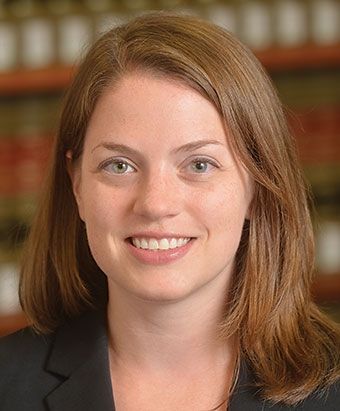
National Security Law Monitor
National security law expert Kristen Eichensehr brings her profound observations and experience in the field to the Law School as a tenured professor, after previously serving as an assistant professor of law at the University of California, Los Angeles.
Before her academic career, Eichensehr served as a special assistant at the U.S. State Department’s Office of the Legal Adviser in the Obama administration. She also practiced at Covington & Burling in Washington, D.C., where she specialized in appellate litigation, international and national security law, and cybersecurity issues.
She writes and teaches about cybersecurity, foreign relations and separation of powers issues.
“Her extensive experience with national security law issues, and her especially deep knowledge of and important interventions into questions of cybersecurity, will add so much to what is already an area of major strength for the Law School,” Goluboff said.
A graduate of Yale Law School, Eichensehr clerked for Justices Sandra Day O’Connor and Sonia Sotomayor at the U.S. Supreme Court, and for Judge Merrick B. Garland of the U.S. Court of Appeals for the D.C. Circuit.
UVA Law’s traditional strength in national security law was a draw for her, she said. In addition, she was “impressed with the workshop culture and with the focus on the students. It seems like a school that really cares a lot about the student experience and teaching.”
She has published in numerous law journals and won the 2018 Mike Lewis Prize for National Security Law Scholarship for her article “Courts, Congress, and the Conduct of Foreign Relations.” Although conducting foreign relations has traditionally been understood as an executive power, the article explores instances in which Congress and the courts engage in foreign relations, and proposes a framework to assess the constitutionality of such actions.
A more recent paper, “The Law and Politics of Cyberattack Attribution,” forthcoming in the UCLA Law Review, argues that when governments accuse each other of conducting cyberattacks, international law should require that they provide evidence to support their accusations.
<p>“Although politics may largely determine whether attributions are made public, this Article argues that when cyberattacks are publicly attributed to states, such attributions should be governed by legal standards,” she writes. “Instead of blocking the development of evidentiary standards for attribution, as the United States, France, the Netherlands, and the United Kingdom are currently doing, states should establish an international law requirement that public attributions must include sufficient evidence to enable cross-checking or corroboration of the accusations.”</p>
<p>Eichensehr said she is excited to work more closely with a number of colleagues whom she already knows and admires, including faculty members <a href="/faculty/profile/ad5jt/2378410">Ashley Deeks</a>, who was also a legal adviser at the State Department when Eichensehr served, and Paul Stephan ’77, who has served as a counselor on international law at the State Department and is currently serving as special counsel to the general counsel of the U.S. Department of Defense.</p>
<p>“I’m delighted that Kristen is joining our faculty,” Deeks said. “Kristen has established herself as a trenchant observer of the increasingly complicated and quickly changing ecosystem of cyber operations. She takes a nuanced and sophisticated view of how the players in that ecosystem interact, and her fine understanding of the political economy and law of cyberspace makes her work a ‘must-read’ for both scholars and practitioners in this field. Our students will be lucky to be able to learn from her.”</p>
<p>Like Deeks and Stephan, Eichensehr is affiliated with the Law School’s new <a href="https://www.law.virginia.edu/academics/program/national-security-law-ce… Security Law Center</a>. She is also an affiliate with the Stanford Center for International Security and Cooperation, an affiliate scholar at the Center for Internet and Society at Stanford Law School, a former term member of the Council on Foreign Relations, and a former visiting fellow at the Hoover Institution. She is member of the editorial board of the national security blog Just Security.</p>
<p>At Yale, Eichensehr served as executive editor of the Yale Law Journal and articles editor of the Yale Journal of International Law. She earned her bachelor’s in government from Harvard University and an M.Phil. in international relations from the University of Cambridge.</p>
<p>She is a Martha Lubin Karsh and Bruce A. Karsh Bicentennial Professor of Law.</p>
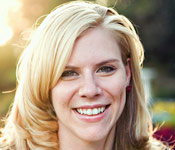
Federal and Criminal Commentator
Richard M. Re, a scholar of criminal procedure, federal courts and constitutional law, “brings his enormous talent to an extremely talented group of public law scholars at the Law School,” Goluboff said.
Re developed his scholarly path after graduating from Yale Law School. He first clerked for Judge Brett Kavanaugh (now a U.S. Supreme Court justice) on the U.S. Court of Appeals for the D.C. Circuit, then for Justice Anthony Kennedy on the U.S. Supreme Court. From those experiences, Re gained an interest in how the courts work and how judicial discretion is applied, he said. He also practiced at a Washington, D.C., law firm, and worked as an Honors Program attorney in the Criminal Appellate Section of the Department of Justice.
“The time at DOJ was very formative for me because I got to do so many interesting types of criminal procedure work, and a lot of digital search issues came up,” he said. “That kind of directed me to tech issues as a professor.”
Re said he is excited to be part of the UVA Law faculty, with whom he has preexisting friendships and collegial ties. He teaches Federal Courts and Advanced Topics in Federal Courts, and expects to teach Criminal Procedure in the future.
“UVA has a great reputation in both of those areas,” he said. “I don’t think there’s any school in the country that has as renowned a bench as UVA in the field of fed courts.”
At UCLA, Re served a faculty co-director of PULSE, the Program on Understanding Law, Science & Evidence. (UCLA Law Dean Jennifer Mnookin, a former UVA Law faculty member, founded the program.) Among the issues he has studied under the aegis of PULSE has been the use of artificial intelligence in judicial decision-making.
Re has won awards on both the academic and teaching sides, and his work has been recognized at the U.S. Supreme Court.
In 2016, his article “Narrowing Supreme Court Precedent from Below” won the American Association of Law School’s award for best paper on federal courts by a (then) untenured professor.
“Whereas most people think lower courts have to strictly follow the best reading of Supreme Court precedent, I suggested that that’s not actually normatively desirable or descriptively what happens in many cases,” he said. “Rather, the lower courts creatively read Supreme Court precedent to have a narrower application than you would think from the best reading of the opinion, and that may have
good effects in many cases.”
Re’s subsequent research garnered attention in 2018 as part of an amicus brief he wrote for the Supreme Court case Hughes v. United States. During oral argument for the case, the justices discussed the brief. At issue was the “Marks rule,” or the idea that, in the absence of a majority court opinion, the narrowest opinion concurring in the judgment is controlling.
<p>In 2017, Re was selected as Professor of the Year at UCLA by the graduating class. He said being an engaged teacher is integral to being a successful academic.</p>
<p>“I get a thrill out of teaching and being a part of people’s careers, before they really launch their careers fully,” he said. “And it’s incredible how much I learn from the students and from their questions.”</p>
<p>In addition to publishing in top law journals, Re is also a member of PrawfsBlog and maintains his own blog, Re’s Judicata.</p>
<p>Re earned a bachelor’s in social studies from Harvard University and an M.Phil. in political thought and intellectual history from the University of Cambridge.</p>
<p>He knows two of his new colleagues from his previous education. He attended law school at Yale with Professor <a href="/faculty/profile/qc3q/2298852">Quinn Curtis</a>, and Professor <a href="/faculty/profile/fs7t/1206076">Frederick Schauer</a> was his undergraduate thesis adviser at Harvard. Schauer, he said, has had “a wonderful influence on my career,” including in shaping his thoughts on jurisprudence.</p>
<p>Re is the Joel B. Piassick Research Professor of Law, and an affiliated faculty member of the school’s <a href="/academics/program/center-criminal-justice">Center for Criminal Justice</a> and the <a href="/academics/program/center-law-philosophy">Center for Law & Philosophy</a>.</p>
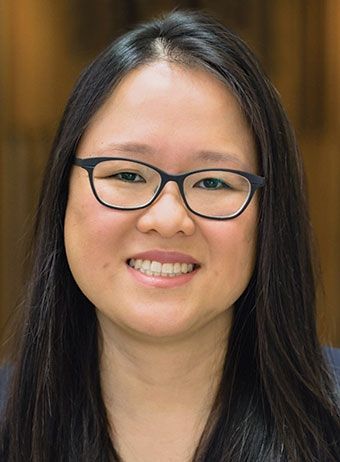
The Deals Expert
Cathy Hwang is a “rising star” who has already become an important voice in business law, Goluboff noted. Hwang, whose work merges theory with real-world practice, most recently served as an associate law professor at the University of Utah. She joined UVA as a tenured professor.
Two of her articles, “Deal Momentum” and “Unbundled Bargains: Multi-Agreement Dealmaking in Complex Mergers and Acquisitions,” have been recognized as top 10 corporate and securities articles of the year in Corporate Practice Commentator polls of academics in 2018 and 2017, respectively. She won the College of Law’s Early Career Faculty Award in 2018.
Hwang is a graduate of the University of Chicago Law School and Pomona College, where she majored in economics and international relations. After law school, Hwang worked for three years as an associate for Skadden, Arps, Slate, Meagher & Flom in New York City, focusing on mergers and acquisitions. She served as a fellow at Stanford Law School’s Rock Center for Corporate Governance before joining the Utah faculty in 2016. At the Law School she teaches Mergers and Acquisitions, Corporations and Deals.
“I think of myself as bridging the gap between traditional contract theory and what is happening
in the real world,” she said. “I interview deal lawyers — people who are on the front lines of creating deals — and ask them why they do things in a particular way or why it is that they design contracts in the way that they do. And I try to see if that matches up with our theoretical understanding of why and how people engage in contract drafting.”
In “Deal Momentum,” which was selected for the Stanford/Yale/Harvard Junior Faculty Forum, she talked to parties to nonbinding preliminary agreements in M&A deals. She found that the parties set up these small preliminary deals much closer to the time they enter into a real contract than theorists believed, and argues they are more like signposts that a deal is about to occur than a real contract.
<p>In “Unbundled Bargains,” Hwang revisited her time as an associate, when she worked extensively on ancillary agreements as part of working on a merger. She found that merger parties use the agreements to streamline the contract drafting process. Smaller issues can be tackled by associates, she said, and contracts that require more expertise can be addressed by a specialist.</p>
<p>Professor Quinn Curtis, vice chair of the Law School’s Appointments Committee and also an expert in the school’s John W. Glynn, Jr., Law & Business Program, said in a short time Hwang “has established herself as a prolific scholar of contracts.”</p>
<p>“Her knowledge of merger agreements, drawn from practice and interviews with practitioners, provides a unique and important perspective,” Curtis said. “She’ll be a great addition to our business law faculty.”</p>
<p>Hwang said she is motivated to teach on a faculty where many contracts luminaries have taught. Virginia’s tradition of nurturing women for positions of leadership was also a draw.</p>
<p>“One of the things I was most excited about was just being able to learn from [Dean Risa Goluboff and Vice Dean Leslie Kendrick ’06], and to be part of whatever is in the water here.”</p>
<p>Hwang is the first woman in her family to go to college. A family member — and the fictional character Nancy Drew — inspired her decision to pursue law from an early age. When her future aunt-in-law asked her what she wanted to be when she grew up, Hwang responded that she wanted to be a girl detective.</p>
<p>“She was like, ‘That’s not a real job. If you like the idea of being a girl detective, maybe you should</p>
<p>be a lawyer instead.’” Hwang is affiliated with the Law School’s John W. Glynn Jr. Law & Business Program.</p>
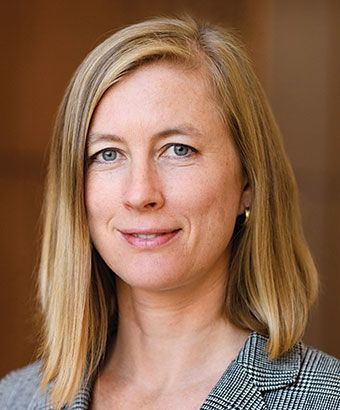
An Economist Focused on Criminal Justice
Megan T. Stevenson, an economist and legal scholar whose research has informed the field of criminal law and policy, comes to the Law School from George Mason University.
“Her scholarship is both rigorous and accessible, and it offers real purchase on real-world problems,” Goluboff said. “Criminal justice is an area of major strength for the Law School, and we are delighted that Megan’s perspective will add yet Stevenson’s insights on bail and pretrial detention have been influential, including in the federal courts.
“I got interested in bail because it seemed so problematic in so many ways,” said Stevenson, who joined the school as an associate professor of law.
Two of her research papers were cited by the U.S. Court of Appeals for the Fifth Circuit as part of the 2018 decision in O’Donnell v. Harris County, Texas, et al. The court reaffirmed a district court ruling that the county’s bail system for misdemeanor offenses violated due process because it favored those most able to pay.
Stevenson said it was a coincidence that she had been studying the problems in that county — the third largest in the U.S. — shortly before the Fifth Circuit weighed in, and that she was happy her research helped make a difference.
“The case is one of the first strong condemnations of our monetary bail system that the courts have issued,” she said. “Condemning it both because it violates equal protection, in that it conditions your freedom on wealth, but also because it violates due process, because you’re having your liberty taken away from you on the basis of a one-minute Mickey Mouse hearing. If the judge sets bail at a level you can’t afford, this one-minute hearing is effectively a pretrial detention order.”
<p>“<a href="https://ssrn.com/abstract=2809840" target="_blank">The Downstream Consequence of Misdemeanor Pretrial Detention</a>,” co-authored with Paul Heaton and Sandra Mayson, was her main paper referenced. It found that “detaining people pretrial results in a large likelihood that people will plead guilty,” Stevenson said. That inducement is a recipe for widespread adjudication error, the paper contends.</p>
<p>“If you’re in jail and the prosecutor says if you plead guilty you can go home, people will take it,” she said.</p>
<p>Stevenson added that those who can’t put up bail will have greater trouble putting together their defense.</p>
<p>“The system is sadly discriminatory based on wealth, because if you can afford bail, you don’t have this pressure,” she said.</p>
<p>Her other paper referenced by the court, “<a href="https://ssrn.com/abstract=2777615" target="_blank">Distortion of Justice: How the Inability to Pay Bail Affects Case Outcomes</a>,” had similar conclusions and won the 2019 Oliver E. Williamson Prize for best article from the Journal of Law, Economics, & Organization. The research focused on a different locality — one in Philadelphia.</p>
<p>More recently, Stevenson has returned her focus to Philadelphia in “<a href="https://ssrn.com/abstract=3335138" target="_blank">Bail, Jail and Pretrial Misconduct: The Influence of Prosecutors</a>,” co-authored with Aurelie Ouss. The paper examines bail reform measures under District Attorney Larry Krasner, who is a leader in the progressive prosecution movement. Krasner’s office no longer requires bail to be set for misdemeanor offenses, for example, although a judge still has the final say. Stevenson found that such discretionary measures have had a positive impact, while not resulting in spikes in crime or significant increases in defendants failing to show up in court.</p>
<p>At UVA, Stevenson teaches Criminal Law as well as courses on evidence-based criminal justice reform and law and economics.</p>
<p>In teaching law and economics, “I share what I think is so fascinating about it, but in a way that’s not too technical,” she said.</p>
<p>Before joining George Mason’s Antonin Scalia Law School, where she taught Law & Economics and Criminal Law, Stevenson was a fellow at the Quattrone Center for the Fair Administration of Justice at the University of Pennsylvania Law School. At UVA, she is an affiliate of the <a href="/academics/program/center-criminal-justice">Center for Criminal Justice</a> and the <a href="/academics/program/john-m-olin-program-law-and-economics">John M. Olin Program in Law and Economics</a>.</p>
<p>Her research has been funded by the National Science Foundation, the Russell Sage Foundation, and the Laura and John Arnold Foundation.</p>
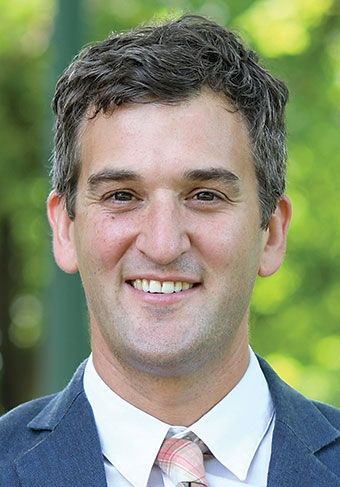
Observer of Overincarceration
Thomas Frampton, a former public defender who focuses on criminal law and constitutional procedure, began his work as an associate professor of law at UVA this summer.
Frampton was previously a Climenko Fellow and lecturer at Harvard Law School who split his time between Harvard, where he taught legal research and writing, and pro bono practice in Louisiana.
“Thomas Frampton’s integration of his ground-level view of the criminal justice system with doctrinal sophistication makes his scholarship relevant not only to other scholars, but also to lawyers and judges,” Goluboff said.
He began his career with the Orleans Public Defenders after graduating from the University of California, Berkeley School of Law in 2012, and following a pair of clerkships. In addition, he holds bachelor’s and master’s degrees in American studies from Yale University.
Frampton’s recent scholarship is highly focused on the “carceral state,” which refers to mass incarceration in contemporary America, particularly in light of discrepancies based on race and social position.
“One of the essential challenges in the study and teaching of criminal law today is to grapple with the extraordinary explosion of the carceral state in this country over the past few decades,” Frampton said. “Certainly having a little bit of time in practice has reinforced and enriched that perspective, and I hope that I am able to bring some of that experience into the classroom.”
His paper “The Jim Crow Jury,” which was published in the Vanderbilt Law Review in 2018, has recently gained traction in light of the recent U.S. Supreme Court case Ramos v. Louisiana. The court cited his paper twice in affirming that jury verdicts in criminal trials must be unanimous, something that not all states required. Frampton’s paper had previously been cited in a number of amicus briefs before the court in that case.
“The Jim Crow jury never fell,” he writes in the paper’s abstract, referring to the way juries have been stacked against African Americans from after the Civil War to today.
His latest paper, “For Cause: Rethinking Racial Exclusion and the American Jury,” was published in April in the Michigan Law Review.
As a public defender, Frampton witnessed numerous problems related to race and justice, including jury fairness, firsthand. He was a trial attorney who also assisted on “special litigation” when his fellow attorneys encountered unusual problems, often constitutional in nature.
Frampton is teaching first-year students Criminal Law and Criminal Adjudication, and is a faculty affiliate of the school’s Center for Criminal Justice. He said he looks forward to serving as a mentor to students who may be considering criminal law.
“It’s a pretty extraordinary way to cut your teeth as a young lawyer,” he said of public defense work. “There is a huge and pressing need to go into that arena.”
He also looks forward to developing his scholarship with the feedback of colleagues he admires, and in some cases has cited, he said, including Professors Josh Bowers, Darryl Brown ’90, Anne Coughlin and Kim Forde-Mazrui.
Bowers, who worked with the Bronx Defenders early in his career, said Frampton adds novel academic insight, informed by practice, as well as an enthusiasm to which students will respond.
“I am extremely excited for Thomas Frampton to join UVA Law,” Bowers said. “Frampton’s jury scholarship is genuinely groundbreaking and valuable. He demonstrates that problems of racial exclusion extend well beyond the use of preemptory challenges. This work is academically rigorous, original and refreshingly informed by practice. He has already shifted how I think about my own teaching and writing.
“Moreover, he is clearly a generous colleague and an effective and creative educator. I am confident he will be an absolute hit with students.”
After law school, Frampton clerked for Judge Jack B. Weinstein of the U.S. District Court for the Eastern District of New York and Judge Diane P. Wood of the U.S. Court of Appeals for the Seventh Circuit. He was a member of the California Law Review and editor of the Berkeley Journal of Employment and Labor Law. He won the highest graduation honors for scholarship and advocacy, and for academic writing.

